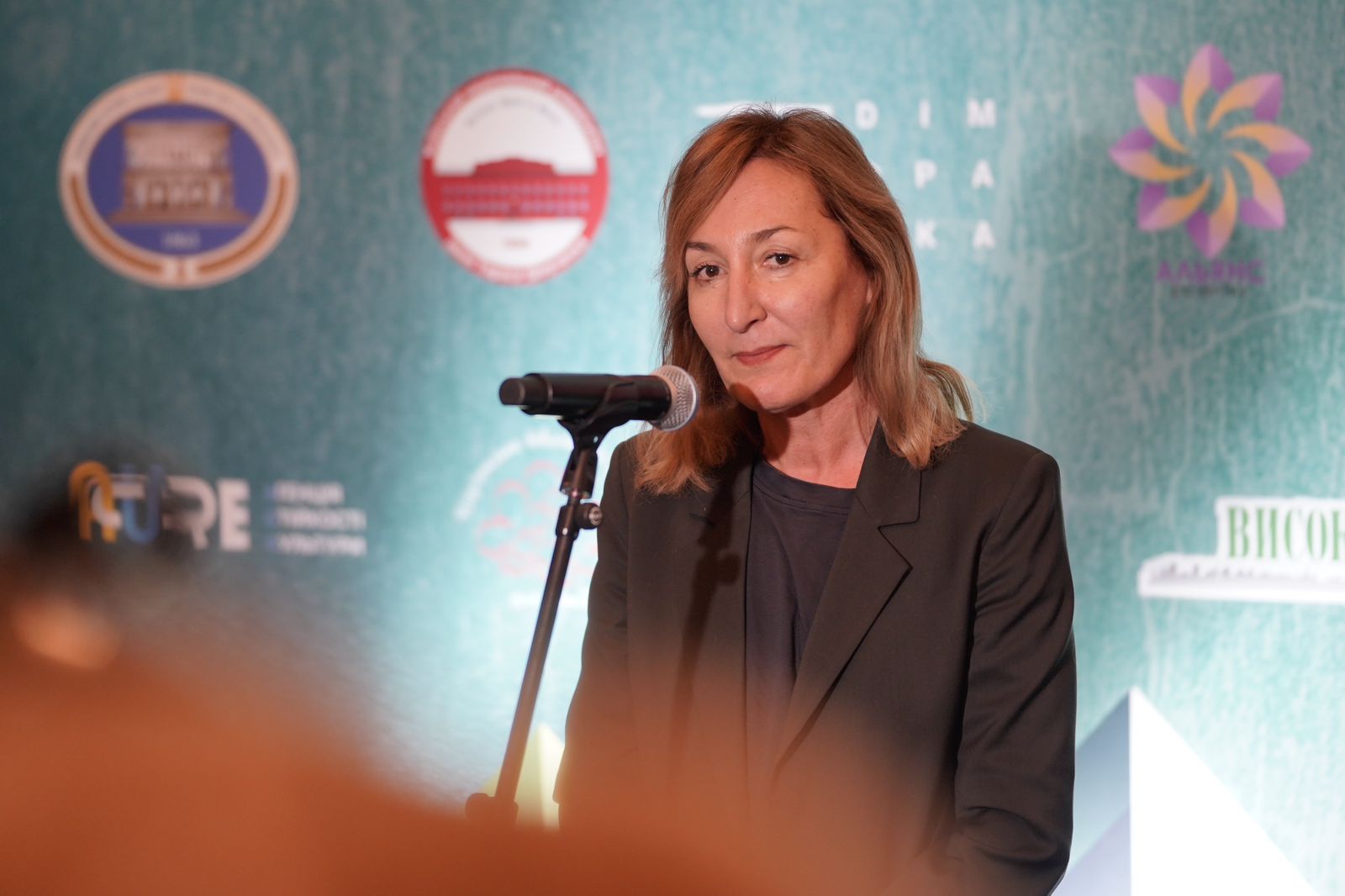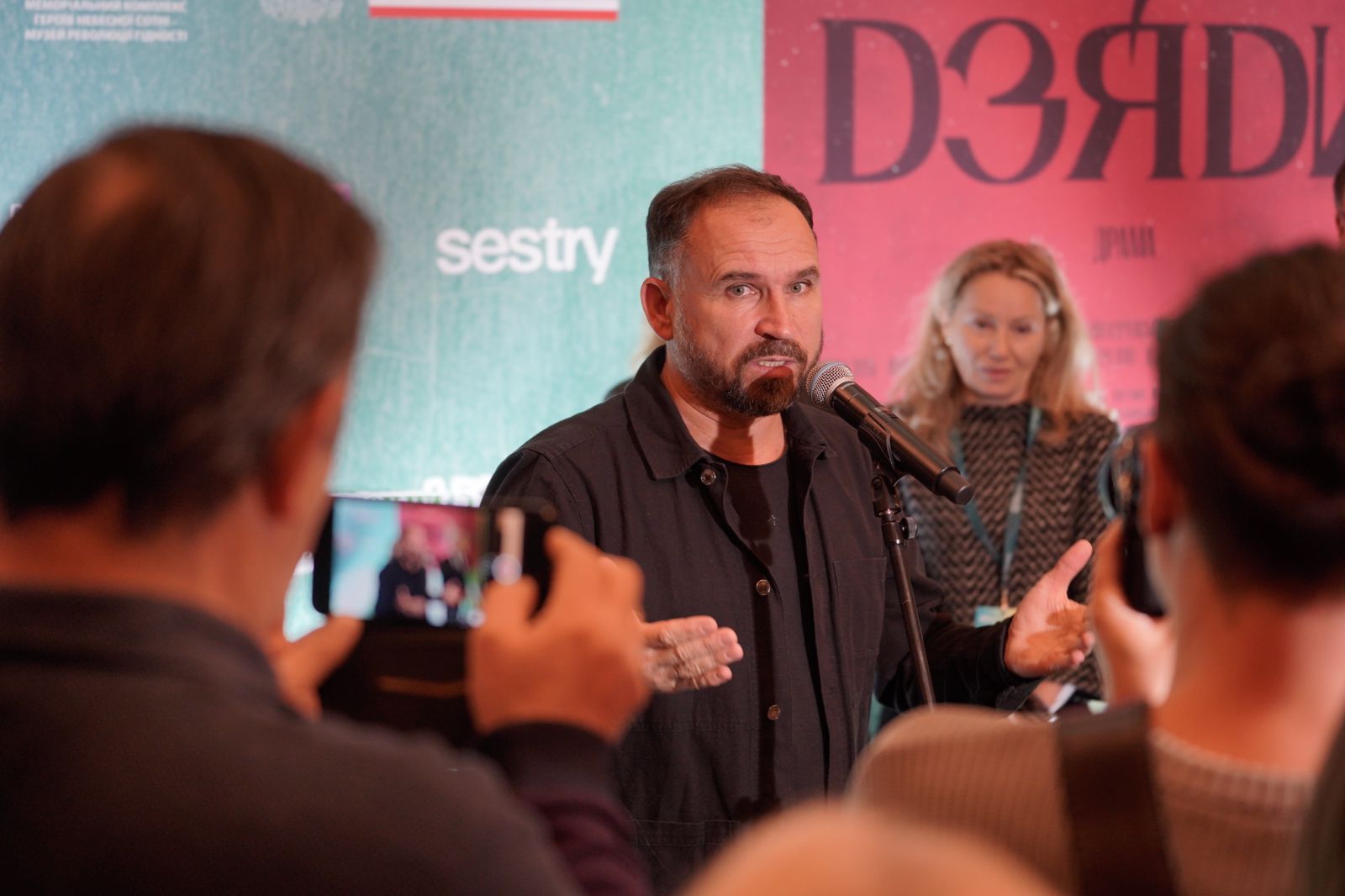At the National Music Academy, during the International Forum of Central and Eastern Europe “Via Carpatia 2024”, a large-scale performance “Dziady” based on the poem by Adam Mickiewicz was presented for the first time.
The play was interpreted in a contemporary context by Polish director Maya Klechevskaya, who staged it in collaboration with the Ivano-Frankivsk National Dramatic Theater named after Ivan Franko and the artistic director Rostyslav Derzhypilskyi, reports the Ministry of Culture and Strategic Communications.
According to the Minister of Culture and Strategic Communications Mykola Tochitsky, this performance symbolizes the unity of Ukraine and Poland.
“Together we fight for our freedom! The common message: just like 200 years ago when Mickiewicz wrote this work: the enemy is one — colonial Russia. We will only win together,” the minister emphasized.
For the first time, the Frankivsk Drama Theater showcased the performance in 2023, and it was already highly praised in Poland, being recognized as the main theatrical event of the year. It also made it to the shortlist for the nomination “For the Best Performance at the Intersection of Theatrical Genres, Artistic Synthesis, and Performative Forms” at the Festival-Award “GRA”-2024.

According to the director of the performance, for Poles, this is probably the most important work by Mickiewicz, and it is thanks to the Ivano-Frankivsk Theater that Ukrainians in Poland understood the essence of this piece.
The plot of the performance addresses the shared history of Ukrainians and Poles, their struggle against Russian aggression. It explains the inhumane nature of the enemy country through the centuries and calls for perseverance in the fight for freedom, without hiding from war.
As noted by the artistic director of the Ivano-Frankivsk Drama Theater, Mickiewicz wrote “Dziady” in 1822 when Poland was partially under the occupation of the Russian Empire. Mickiewicz himself was in exile. However, it happened that only 200 years later, in 2022, the work was translated into Ukrainian. For the first time, it was performed in Ukrainian on the stage of the Ivano-Frankivsk National Dramatic Theater.
The theater's director stated that this brilliant work remains relevant regardless of whether it was written 2000, 1000, 500, or 200 years ago.

“And Maya Klechevskaya managed to skillfully transfer events that took place in Poland in the 19th century to today and to our war, which makes me sometimes feel that we, Ukrainians, probably would not have dared to do it so boldly. When we perform it abroad, we say that today everything Russian kills,” noted Rostyslav Derzhypilskyi.
The performance about captured Ukrainian soldiers, specifically the defenders of “Azovstal,” consists of several scenes. The events take place in various settings: on the main stage, in the auditorium, and on screen.
The performance is structured in a way that actively engages the audience. For instance, after the main character, played by Roman Lutskyi, experiences an “exorcism act” by the priests of the Russian Orthodox Church, visitors move past him to another hall. The performance continues. In the final scene, the audience witnesses the demise of the Russian Empire.
: